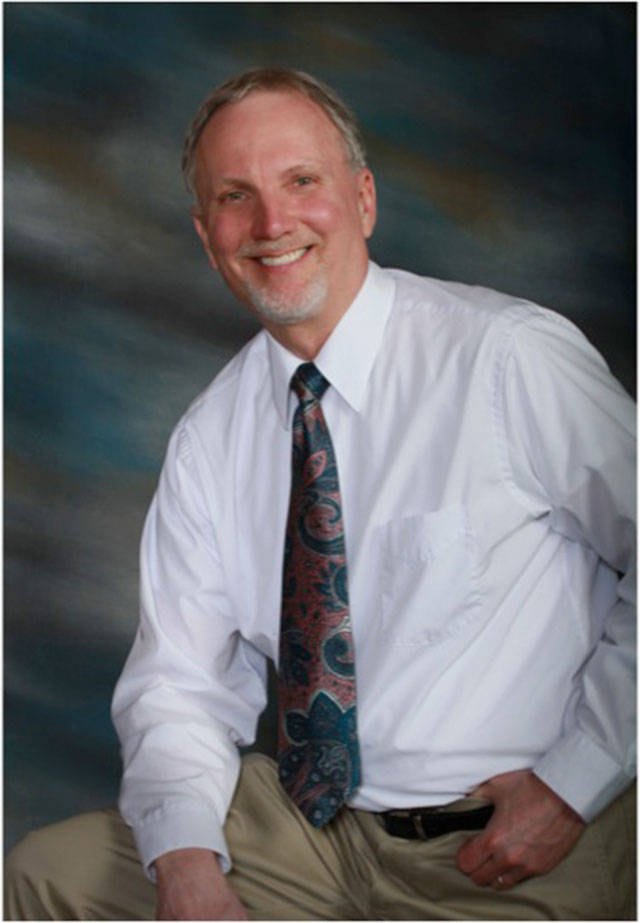This column has become a victim of the coronavirus pandemic — it’s possible this will be my last newsprint edition for the duration of the pandemic for the Enumclaw Courier-Herald.
Change comes to all of us. When I was a teenager, prospects of the Vietnam Conflict loomed large in my life and my generation; D.B. Cooper changed how we fly with his hijacking of an airliner bound for Sea-tac on November 21st, 1971 (I saw the plane circling the Kent-Auburn Valley near Renton where I lived at the time); 9/11; the 2008 Great Recession. The list is long.
Certainty is a myth. Change is a certainty. The novel COVID-19 virus is wreaking havoc on us and on the world. As we watch its spread, we know that it has changed our lives drastically. We adapt, change our habits and move on, transformed by the experience.
“Politico” recently published an article entitled, “Coronavirus Will Change the World Permanently. Here’s How”. The writer interviewed 34 experts who made their predictions about how the world will be different after this crisis passes. The three most important will be discussed here.
A decline in polarization: The virus could bring an end to the 50-year political and cultural divisions that have torn the U.S. apart. We now have a common enemy and we are waging war on it as we never have fought any military conflict. The interesting paradox is that this virus doesn’t care if you are a Republican or a Democrat. It’s an equal opportunity disease.
With the attack on Pearl Harbor, Americans had to focus their attention on fighting common enemies. Unemployment and the Great Depression ended with the draft and the need for new weapons and supplies produced in American factories. The change didn’t come easily or quickly or painlessly.
A return to faith in serious experts: According to “Politico”, “America for several years has become a fundamentally unserious country. This is the luxury afforded us by peace, affluence and high levels of consumer technology.” We send volunteers to fight our wars in Iraq and Afghanistan. We even elected a reality TV personality to the presidency to attack the bureaucracy and the experts who make our government function on a daily basis.
The COVID-19 virus has forced us to appreciate a government that uses medical experts to stop the spread of disease and to save lives. This contrasts with a president who has continually attempted to minimize the threat of the disease by his predictions and promises.
Big government has made a comeback as a result. We now listen to governmental advisors and follow their words. A major mistake of the Trump administration was to diminish the importance of a trained and experienced staff in the National Security Agency. John Bolton, NSA advisor to the president, cut the team who had experience dealing with medical threats like the Ebola, SARS, MERS, and Zika virus. Their experience has not been available to deal with the COVID-19 crisis. As a result, delays occurred that have and will cause the deaths of thousands of American citizens.
As Politico noted: “The Reagan era is over. The widely accepted idea that government is inherently bad won’t persist after coronavirus.” We now anxiously wait and hope for government intervention to pay our bills and provide masks and medical care for the sick.
Expect a political uprising: After the crisis is over, it will be clear that affluent communities fared better than poor neighborhoods. The poor, seeing that they were neglected while the richer areas were taken care of, will be angry. With the passage of multi-trillion dollar bailouts by the Federal Reserve and a unanimous Congress, expectations of government help for other pressing political problems will grow. The poor will demand change, some with pitchforks or worse.
Expect to see the rise of absentee balloting for the whole nation over a month, rather than on a day. This will help to solve some of the problems of foreign interference in the voting process and reduce voter suppression. Voters will not be dissuaded from voting by concern over long lines. Absentee ballots mailed early will also diminish “October Surprises” that change the outcome of an election in the last few days before the vote.
Change has come to all of us and we will be altered by this world crisis. On a local basis, we will have to rely on the Internet. As Roy T. Bennett stated: “It’s only after you have stepped outside your comfort zone that you begin to change, grow, and transform.” COVID-19 has definitely forced us outside our comfort zone.


